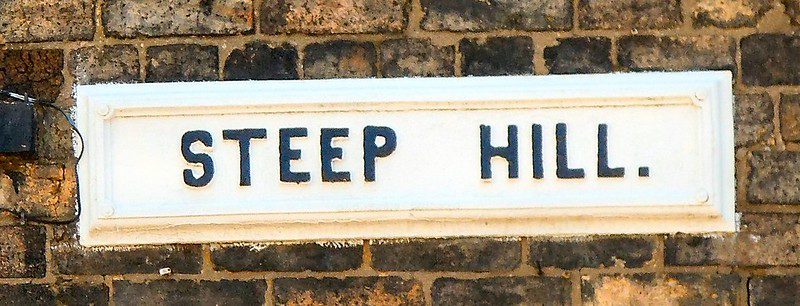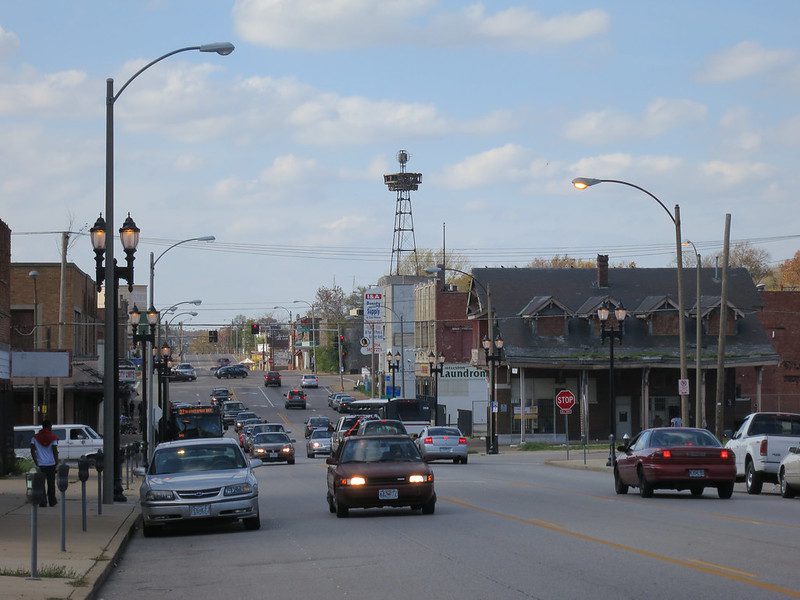It’s been an exciting year in labor organizing, between the Chicago teachers strike, Port of Oakland shut downs, Wal-Mart walkouts, and New York City’s multi-chain fast food workers’ walkout. Healthy, progressive labor organizing is essential to economic justice (negotiations can only happen between two parties that each have some power and something to give or withhold, and working people can’t have that without being organized).
Especially as the organizing moves into new sectors and employers where wages and conditions are truly deplorable, as with the Wal-Mart and fast-food chain organizing, it’s a great opportunity for folks who were brought to awareness of economic justice issues by the housing and financial crisis to show solidarity.
But it might take a little practice.
After the Black Friday walkouts and solidarity rallies, Sarah Jaffe, a writer who has been following labor organizing had an excellent, if sobering piece entitled “Dumping on low-wage workers is lousy direct action.” Writing about those recommending “disruptive” tactics on Black Friday, like filling carts and then abandoning them in line, or paying for a purchase in pennies, Jaffe points out that actions that make no dent in a giant corporation’s bottom line; and making life harder for the low-wage worker you are purporting to support is hardly solidarity. In fact, “such actions, practiced carelessly, can damage years of deep, fragile organizing to build worker power.”
Not to mention, “for one solitary worker considering striking by herself,” writes Jaffe, “a glance outside at a crowd singing ‘Solidarity Forever’ might tip the balance one way, while a full cart in her checkout line that she has to clean up after might swing it the other.”
I attended the Wal-Mart solidarity rally on Black Friday outside the Glenmont Wal-Mart near my home in upstate NY. While happily, as far as I know, no one indulged in dump-on-the-workers disruption there, there did seem to be a bit of confusion about whether we were there to show solidarity with the Wal-Mart workers or to use the occasion of a Black Friday Wal-Mart walkout to chant about other tangentially related things.
Indeed, the most frequent chant of the day was “It’s classist that you won’t let/people rise above our debt.” Now I think the recent organizing around debt—student debt, mortgage debt, predatory debt practices, different standards for individual debtors and corporate debtors, etc.—has been powerful and important. And it has been part of the very important phenomenon of a large group of “middle class” folks waking up to the reality that their interests are more aligned with those of the working class and the poor than with those of the ultra rich—hence the 99 percent mantra.
However, there’s a huge diversity within the 99 percent, and if you talk to those who have experienced deep poverty, many will tell you they are a little skeptical that those who have managed to obtain graduate degrees and mortgages, even at the cost of an ongoing debt burden, quite understand what life is like for those at the bottom end of the income and assets scale, many of whom don’t even have a bank account. And they are even more skeptical that we are going to stick around and advocate for them when things ease up for us a bit.
Chanting mostly about debt at an event where you are supposed to be showing support for people who make so little that many can’t feed their families without food stamps—and whose stated issues are about wages, full-time hours, retaliation, health care, and right to organize—is tone deaf at best and quite likely damaging to both your credibility and your partnerships. It would have been better to stand silent.
When you are on a picket line or at a solidarity rally, you have come to show that you have someone else’s back, not to talk about whatever is uppermost on your mind.
It’s not that there aren’t connections to be drawn between the working conditions at Wal-Mart and the debt-fueled economy. But those connections take a couple steps in the drawing and are better saved for a forum where they can be explained, rather than assumed and put front and center.
Now, I’m quite sure that every last person who showed up at the Glenmont rally—and there were a goodly number of us—did so basically for the right reasons and deserves kudos for shaking off the post-Thanksgiving stupor and getting out there.
It is because I see real promise for a powerful new movement of economic solidarity emerging right now that I think it’s crucial for everyone, but especially the non-poor, in that coalition to keep checking ourselves, practicing our listening skills, and exercising our taking-a-support-role-while-others-speak-for-themselves skills. Not easy. Definitely. But what it will take.
(This piece first appeared in Metroland, the Albany, NY, alt-weekly. Photo by Neon Tommy, CC BY-SA.)






Comments